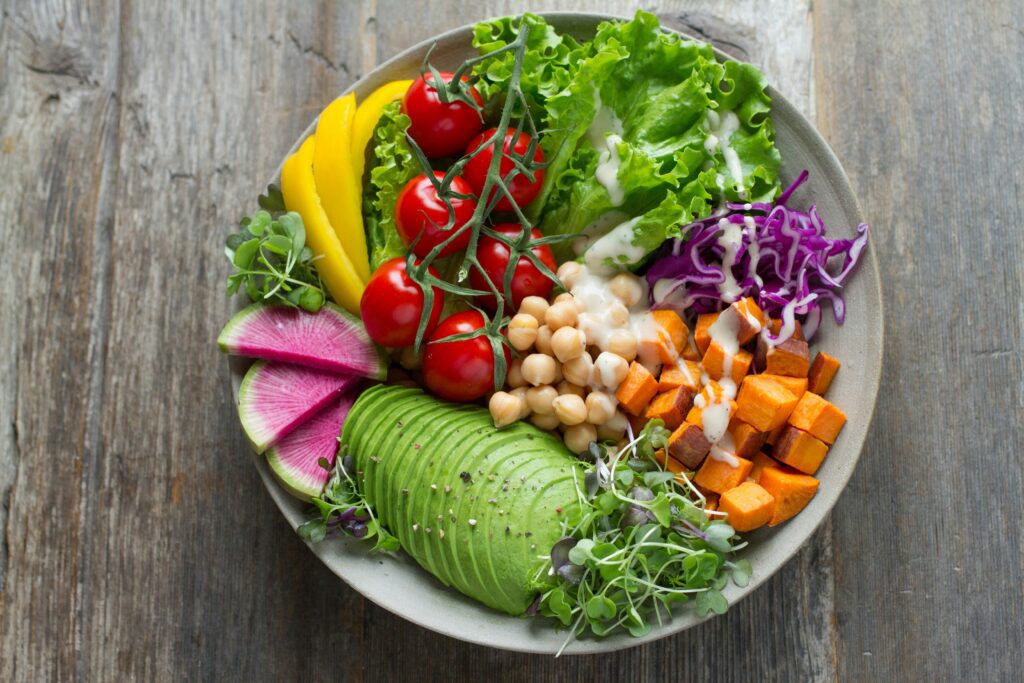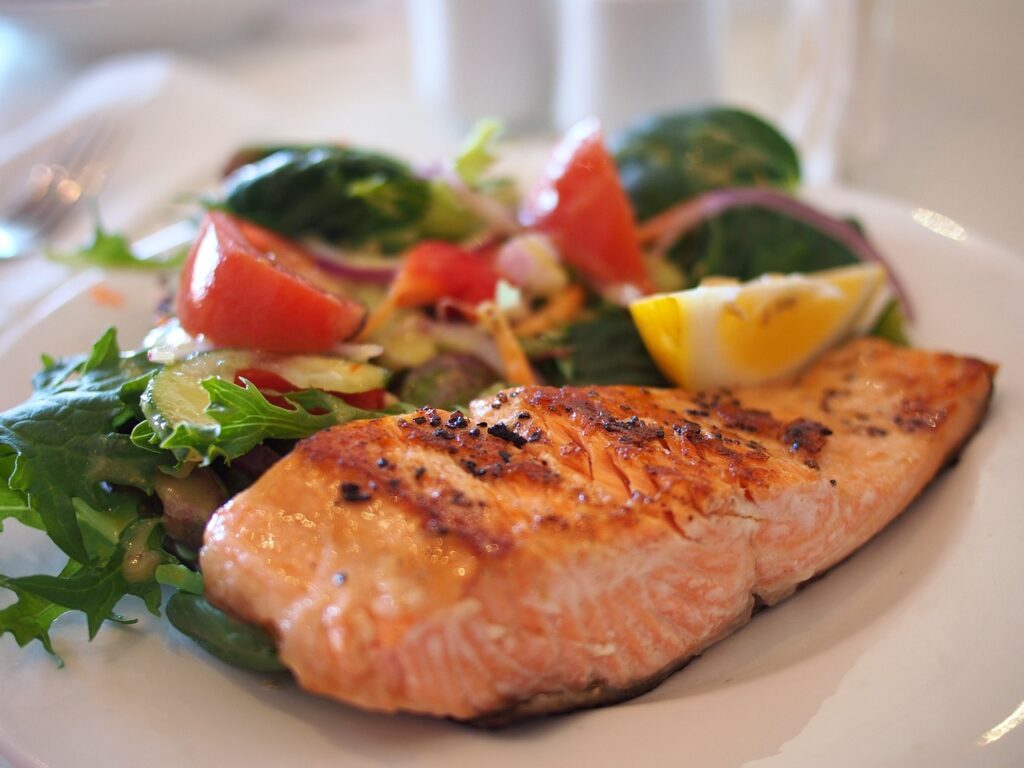
The Vasomotor Villain
Up to 75% of American middle-aged women report having hot flashes. In Western Medicine, this is understood to occur as estrogen levels decrease, which leads to vasodilation – the sudden widening of blood vessels – which then causes hot flashes. (I want to give a nod here to Traditional Chinese Medicine and the belief that Kidney Yin becomes deficient and causes these symptoms–but for the purpose of this article I’ll focus on Western Medicine!).
While hormone therapy can help, many women seek natural alternatives.
It turns out eating a plant-based diet can alleviate (and in some cases, eradicate) hot flashes and night sweats.
A December 2023 study published in Complementary Therapies in Medicine found that a low-fat vegan diet with soy decreased hot flashes by 95%. This backs up prior research published in “Menopause,”[1] which showed similar improvement over a 12-week study; moderate-to-severe hot flashes decreased by 84% in the group eating a vegan (as opposed to an omnivore) diet, and 59% of the women reported their hot flashes stopped.
Even if it was a small study, those are incredible results!
“We do not fully understand yet why this combination works but it seems that these three elements are key—avoiding animal products, reducing fat, and adding a serving of soybeans,” explains lead researcher Neal Barnard, MD, president of the Physicians Committee and adjunct professor at the George Washington University School of Medicine.
“Our results mirror the diets of places in the world, like pre-Westernized Japan and modern-day Yucatán Peninsula, where a low-fat, plant-based diet including soybeans is more prevalent and where postmenopausal women experience fewer symptoms.”
- [1] The Women’s Study for the Alleviation of Vasomotor Symptoms (WAVS): a randomized, controlled trial of a plant-based diet and whole soybeans for postmenopausal women

Plant Power Activated
A vegan diet, rich in fruits, vegetables, legumes, and whole grains, boasts several potential benefits for vasomotor (hot flash etc.) symptoms:[2]
- Phytoestrogens: Plant-based compounds like isoflavones in soy and lignans in flaxseeds mimic estrogen’s effects, potentially easing vasodilation.
- Antioxidants: Fruits and vegetables contain an abundance of antioxidants, which help reduce inflammation and potential improve vascular health.
- Fiber: High-fiber foods promote gut health, influencing estrogen metabolism and potentially lessening its fluctuations.
- Weight Management: Vegan diets tend to be lower in calories and fat, aiding in weight control. Excess weight exacerbates vasomotor symptoms, so weight loss may offer relief.
[2] https://www.ncbi.nlm.nih.gov/pmc/articles/PMC6390141/

What if You Don’t Want to Go Vegan?
Well, back to that study from “Menopause,”[3] in which one of the lead scientists, Dr. Neal Barnard, mentioned Japanese diets.
Studies show that fewer than 10% of Japanese women suffer from hot flashes.[4] The link may very well come down to diet. Traditional Japanese diets include large amounts of soy products as well as oily fish (up to 1,300mg of omega-3 fatty acids per day).
Pesca Prowess
Perhaps a Pegan diet (vegan plus fish) is a good choice if you want the benefits of a vegan diet, plus the ability to eat seafood. Fish have additional benefits that can help women in menopause and perimenopause:
- Reduce Inflammation: Omega-3 fatty acids help reduce inflammation, which in turn may improve vascular function, potentially easing vasomotor symptoms. Fatty fish such as salmon and tuna are rich in Omega-3.
- Reduce Depression: A study showed significant decreases in women with depression during menopause with the introduction of Omega 3 [5].
- Increase Bone Density and Reduce Muscle Fatigue: Fatty fish also contain Vitamin D, which contain many health benefits—some mentioned in my prior article!
[3] https://www.ncbi.nlm.nih.gov/pmc/articles/PMC6390141/
[4] https://www.princeton.edu/~ota/disk1/1992/9238/923808.PDF


Additional Resources:
- The North American Menopause Society: https://www.menopause.org/for-women
- Academy of Nutrition and Dietetics: https://www.eatright.org/
- Physicians Committee for Responsible Medicine: https://www.pcrm.org/
Disclaimer: This article is for informational purposes only and should not be interpreted as medical advice. Always consult your healthcare professional before making any dietary changes.
